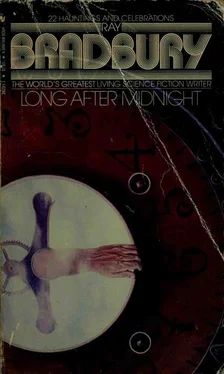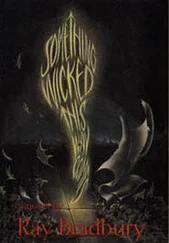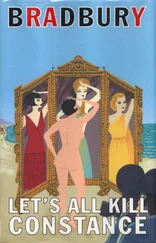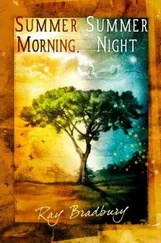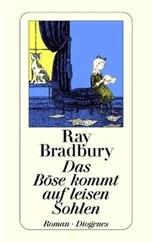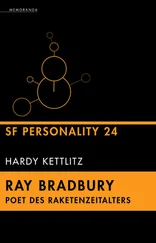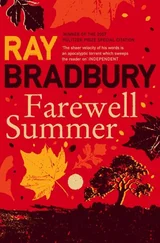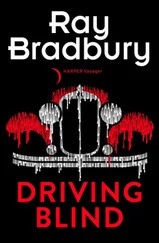Ray Bradbury - Long After Midnight
Здесь есть возможность читать онлайн «Ray Bradbury - Long After Midnight» — ознакомительный отрывок электронной книги совершенно бесплатно, а после прочтения отрывка купить полную версию. В некоторых случаях можно слушать аудио, скачать через торрент в формате fb2 и присутствует краткое содержание. Год выпуска: 1982, ISBN: 1982, Жанр: Классическая проза, на английском языке. Описание произведения, (предисловие) а так же отзывы посетителей доступны на портале библиотеки ЛибКат.
- Название:Long After Midnight
- Автор:
- Жанр:
- Год:1982
- ISBN:978-0-553-22867-0
- Рейтинг книги:5 / 5. Голосов: 1
-
Избранное:Добавить в избранное
- Отзывы:
-
Ваша оценка:
- 100
- 1
- 2
- 3
- 4
- 5
Long After Midnight: краткое содержание, описание и аннотация
Предлагаем к чтению аннотацию, описание, краткое содержание или предисловие (зависит от того, что написал сам автор книги «Long After Midnight»). Если вы не нашли необходимую информацию о книге — напишите в комментариях, мы постараемся отыскать её.
Long After Midnight — читать онлайн ознакомительный отрывок
Ниже представлен текст книги, разбитый по страницам. Система сохранения места последней прочитанной страницы, позволяет с удобством читать онлайн бесплатно книгу «Long After Midnight», без необходимости каждый раз заново искать на чём Вы остановились. Поставьте закладку, и сможете в любой момент перейти на страницу, на которой закончили чтение.
Интервал:
Закладка:
You sit there, you sit there, you sit there, you sit there, you sit there.
"You would not even hear. 'Senora,' he would cry, and tug at you, but you wouldn't feel his hand. And the police would be summoned beyond your circle of comprehension, beyond your eyes or ears or body. You could not even hear the heavy boots in the car. 'Senora, you must leave the bus.' You do not hear. 'Senora, what is your name?' Your mouth is shut. 'Senora, you must come with us.' You sit like a stone idol. 'Let us see her passport.' They fumble with your purse which lies untended in your stone lap. 'Senora Marie Elliott, from California. Senora Elliott?' You stare at the empty sky. 'Where are you coming from? Where is your husband?' You were never married. 'Where are you going?' Nowhere. 'It says she was born in Illinois.' You were never born. 'Senora, senora' They have to carry you, like a stone, from the bus. You will talk to no one. No, no, no one. 'Marie, this is me, Joseph.' No, too late. 'Marie!' Too late. 'Don't you recognize me?' Too late. Joseph. No, Joseph, no nothing, too late, too late."
"That is what would have happened, is it not?"
"Yes." She trembled.
"If you had not stopped the bus, you would have been heavier and heavier, true? And silenter and silenter and more made up of nothing and nothing and nothing."
"Yes."
"Senora" said the Spanish gentleman driving, breaking in on her thoughts. "It is a nice day, isn't it?"
"Yes," she said, both to him and the thoughts in her mind.
The old Spanish gentleman drove her directly to her hotel and let her out and doffed his hat and bowed to her.
She nodded and felt her Nmouth move with thanks, but she did not see him. She wandered into the hotel and found herself with her suitcase back in her room, that room she had left a thousand years ago. Her husband was there.
He lay in the dim light of late afternoon with his back turned, seeming not to have moved in the hours since she had left. He had not even known that she was gone, and had been to the ends of the earth and had returned. He did not even know.
She stood looking at his neck and the dark hairs curling there like ash fallen from the sky.
She found herself on the tiled patio in the hot light. A bird rustled in a bamboo cage. In the cool darkness somewhere, the girl was playing a waltz on the piano.
She saw but did not see two butterflies which darted and jumped and lit upon a bush near her hand, to seal themselves together. She felt her gaze move to see the two bright things, all gold and yellow on the green leaf, their wings beating in slow pulses as they were joined. Her mouth moved and her hand swung like a pendulum, senselessly.
She watched her fingers tumble on the air and close on the two butterflies, tight, tighter, tightest. A scream was coming up into her mouth. She pressed it back. Tight, tighter, tightest.
She felt her hand open all to herself. Two lumps of bright powder fell to the shiny patio tiles. She looked down at the small ruins, then snapped her gaze up.
The girl who played the piano was standing in the middle of the garden, regarding her with appalled and startled eyes.
The wife put out her hand, to touch the distance, to say something, to explain, to apologize to the girl, this place, the world, everyone. But the girl went away.
The sky was full of smoke which went straight up and veered away south toward Mexico City.
She wiped the wing-pollen from her numb fingers and talked over her shoulder, not knowing if that man inside heard, her eyes on the smoke and the sky.
"Y6u know ... we might try the volcano tonight. It looks good. I bet there'll be lots of fire."
Yes, she thought, and it will fill the air and fall all around us, and take hold of us tight, tighter, tightest, and then let go and let us fall and we'll be ashes blowing south, all fire.
"Did you hear me?"
She stood over the bed and raised a fist high but never brought it down to strike him in the face.
A Story of Love
That was the week Ann Taylor came to teach summer school at Green Town Central. It was the summer of her twenty-fourth birthday, and it was the summer when Bob Spaulding was just fourteen.
Everyone remembered Ann Taylor, for she was that teacher for whom all the children wanted to bring huge oranges or pink flowers, and for whom they rolled up the rustling green and yellow maps of the world without being asked. She was that woman who always seemed to be passing by on days when the shade was green under the tunnels of oaks and elms in the old town, her face shifting with the bright shadows as she walked, until it was all things to all people. She was the fine peaches of summer in the snow of winter, and she was cool milk for cereal on a hot early-June morning. Whenever you needed an opposite, Ann Taylor was there. And those rare few days in the world when the climate was balanced as fine as a maple leaf between winds that blew just right, those were the days like Ann Taylor, and should have been so named on the calendar.
As for Bob Spaulding, he was the cousin who walked alone through town on any October evening with a pack of leaves after him like a horde of Hallowe'en mice, or you would see him, like a slow white fish in spring in the tart waters of tie Fox Hill Creek, baking brown with the shine of a chestnut to his face by autumn. Or you might hear his voice in those treetops where the wind entertained; dropping down hand by hand, there would come Bob Spaulding to sit alone and look at the world, and later you might see him on the lawn with the ants crawling over his books as he read through the long afternoons alone, or played himself a game of chess on Grandmother's porch, or picked out a solitary tune upon the black piano in the bay window. You never saw him with any other child.
That first morning, Miss Ann Taylor entered through the side door of the schoolroom and all of the children sat still in their seats as they saw her write her name on the board in a nice round lettering.
"My name is Ann Taylor," she said, quietly. "And I'm your new teacher."
The room seemed suddenly flooded with illumination, as if the roof had moved back; and the trees were full of singing birds. Bob Spaulding sat with a spitball he had just made, hidden in his hand. After a half-hour of listening to Miss Taylor, he quietly let the spitball drop to the floor.
That day, after class, he brought in a bucket of water and a rag and began to wash the boards.
"What's this?" She turned to him from her desk, where she had been correcting spelling papers.
"The boards are kind of dirty," said Bob, at work.
"Yes, I know. Are you sure you want to clean them?"
"I suppose I should have asked permission," he said, halting uneasily.
"I think we can pretend you did," she replied, smiling, and at this smile he finished the boards in an amazing burst of speed and pounded the erasers so furiously that the air was full of snow, it seemed, outside the open window.
"Let's see," said Miss Taylor. "You're Bob Spaulding, aren't you?"
"Yes'm."
"Well, thank you, Bob."
"Could I do them every day?" he asked.
"Don't you think you should let the others try?"
"I'd like to do them," he said. "Every day."
"We'll try it for a while and see," she said.
He lingered.
"I think you'd better run on home," she said, finally.
"Good night." He walked slowly and was gone.
The next morning he happened by the place where she took board and room just as she was coming out to walk to school.
"Well, here I am," he said.
"And do you know," she said, "I'm not surprised."
They walked together.
"May I carry your books?" he asked.
"Why, thank you, Bob."
Читать дальшеИнтервал:
Закладка:
Похожие книги на «Long After Midnight»
Представляем Вашему вниманию похожие книги на «Long After Midnight» списком для выбора. Мы отобрали схожую по названию и смыслу литературу в надежде предоставить читателям больше вариантов отыскать новые, интересные, ещё непрочитанные произведения.
Обсуждение, отзывы о книге «Long After Midnight» и просто собственные мнения читателей. Оставьте ваши комментарии, напишите, что Вы думаете о произведении, его смысле или главных героях. Укажите что конкретно понравилось, а что нет, и почему Вы так считаете.
